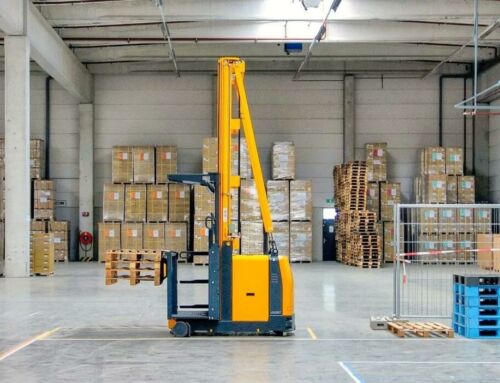
Insurers helping during COVID – Impact on your Insurance
How Insurers are helping their customers during COVID
Insurers are focusing on assisting their customers, including those experiencing financial hardship, and are providing a range of relief and support measures and packages or case-by-case assistance during the COVID-19 crisis.
Visiting your insurer’s website is a great first step. Information on their website will help you understand how they are assisting their customers. You can find your insurer’s details by using the Insurance Council’s Find an Insurer website: https://www.findaninsurer.com.au
The Insurance Council of Australia (ICA) is working with its member companies, governments and regulators to ensure insurers can continue to provide both support and service during this extraordinary and challenging time.
In response to the pandemic, federal, state and territory governments have announced financial assistance packages and other measures to help businesses and householders.
Insurance is not listed as a non-essential activity or business, so insurers can continue to provide services, help and support to their customers.
Insurers helping during Covid – Managing claims and operations
COVID-19 is having a dramatic impact on the daily operation of our lives due to social distancing and shutdown rules, and this includes insurance.
Most insurance business operations and urgent services will remain available during shutdowns, even if restrictions on the community are extended. Unfortunately, it is inevitable that delays and interruptions will occur.
At this time, insurers expect emergency repairs will continue to make a building safe for a customer and for motor vehicle claims and repairs.
Working from home
Employers who ask employees to work from home, or approve such requests, have the same workplace health and safety obligations as those who are working in their normal workplace. Employers should ensure staff working from home have a safe work environment.
Household policies usually do not cover working from home. However, with hundreds of thousands of Australians now working from home, insurers are taking a flexible approach. They expect that anyone working from home will maintain a safe working environment in line with normal workplace health and safety obligations.
Home and Contents Insurance
Home building and contents policies are not currently affected by the COVID-19 pandemic. For information on household insurance visit: http://understandinsurance.com.au/types-of-insurance/household-insurance
Holiday home Insurance
Insurance policies that cover holiday homes may require that the property is not left unoccupied for lengthy periods. The maximum time a property may be left unused will differ depending on the insurer. It is likely many owners of holiday homes will not be able to visit or use their properties for an extended period due to COVID-19 lockdowns and travel bans. Insurers are offering flexibility to customers where possible.
Contact your broker to discuss your individual circumstances.
Landlord Insurance
Landlord insurance protects the investment that a landlord has made in a rental property. Cover can be purchased for the building, contents or rental income, or any combination of these. Cover for loss of rent is not always included in a landlord policy and may be added as required.
Many landlords are mum-and-dad investors who have invested in property to supplement their incomes or support self-managed super funds. Landlords who are borrowers have obligations to their lender, with payments typically met through the collection of rent on the mortgaged property. Banks are providing loan deferrals for many customers.
State and territory governments are encouraging landlords and tenants to negotiate on rent reductions or deferrals if the tenant’s capacity to pay their full rental obligations are affected by COVID-19. These measures are intended to help tenants remain in their homes, rather than be evicted for non-payment or part-payment of their rent. The building, contents and liability protection provided by landlords insurance is not affected when the landlord and tenant agree on rent reductions or deferrals. Governments expect that tenants should continue to pay some rent where they have funds available, especially when they are receiving taxpayer-funded support such as JobKeeper, JobSeeker or rental assistance. Insurers are treating landlord claims on an individual basis. In cases where a residential tenant is suffering genuine financial hardship as a direct result of COVID-19 and cannot fulfil their rental obligations, insurers will not pursue the tenant for unpaid rent.
New landlord insurance policies are available from some insurers with an adjustment to the Tenant Default component of the policy. These policy adjustments are occurring due to the financial uncertainty created by the economic downturn, and the various government announcements about tenant protection measures and the impact on landlords, tenants and insurers.
For information on landlords insurance visit: http://understandinsurance.com.au/types-of-insurance/landlord-and-renters-insurance
Comprehensive Car Insurance and CTP
Reductions in road traffic during the pandemic may result in fewer collisions. However it is too early to gauge the full impact this may be having on claims. Each motor vehicle insurer is best placed to determine how it can help its customers.
Car insurance is bought to cover a variety of risks for a full year. Most risks remain unchanged during the COVID-19 pandemic.
Comprehensive car insurance can cover you for theft or damage to your car while it’s parked on the street, your driveway or garage, such as theft or vandalism, or damage caused by severe weather. It also covers you for damage to the car, or damage you may cause, during essential trips to the doctor, the supermarket or the park for some exercise. If you have finance on your car, you are usually required to maintain comprehensive car insurance.
Most insurers are reporting a reduction in the writing of new comprehensive and third-party motor vehicle insurance policies and a decline in renewals. Insurers have also experienced a sharp increase in motor vehicle insurance claims following the $4.6 billion season of natural disasters, with more than 150,000 claims received above normal claims expectations.
Compulsory Third Party (CTP) personal injury schemes, which are a requirement of registering a vehicle, are regulated by each state and territory. The impact of the pandemic on CTP claims and premiums is a matter for each jurisdiction’s statutory scheme regulators.
Consumer Credit Insurance
If you can’t work because of sickness, injury, disease, employment termination, or death, Consumer Credit Insurance (CCI) can help cover credit card, personal, motor vehicle or home loan repayments depending on the level of cover purchased.
Check your credit card, personal, motor vehicle or home loan documentation for CCI details specific to you, or call your bank or lender, who will have details of any related insurance arranged for you. Your bank or lender will also give you contact details for your CCI insurer if you have a policy.
Some consumer credit policies have exclusions relating to pandemics but insurers are assessing claims on an individual basis.
Credit Card Insurance
Credit Card Insurance which is a type of consumer credit insurance, sometimes known as balance protection insurance, may pay out the outstanding balance on a credit card (subject to any limits in the policy) or it may make monthly payments to a credit card issuer if the policyholder’s income is affected by unforeseen events.
Call your bank or lender for further assistance.
Travel Insurance
Most travel insurance policies have exclusions for outbreaks of infectious diseases, pandemics, epidemics and/or known events.
Coronavirus became a known event for most travel insurers between January 20 and January 31, 2020. Insurers who adopted known event status for COVID-19 have advice for policyholders on their websites.
Many travel insurers have suspended sales of international travel products due to the Federal Government’s travel ban. Some are providing products for travel late in 2020. Customers are advised to contact the insurer about exclusions that may apply.
Many policies also have exclusions relating to government Do Not Travel warnings for certain locations when a policy is purchased. Some policies may assist with associated disruption costs.
Travellers whose plans have been disrupted should first contact their travel agent, airline, accommodation provider or tour operator to seek refunds or make alternative arrangements.
Once the traveller has secured any available refunds or made alternative travel arrangements, they may then speak to their insurer about any remaining financial loss.
Depending on the policy and when it was purchased it, the policyholder may be able to receive assistance or a refund from their insurer. Policyholders have a right to lodge a claim and if it can’t be paid, the insurer will explain why.
Some policies purchased prior to COVID-19 becoming a known event may cover travellers who are/were overseas for coronavirus-related expenses. This will depend on the travel insurance product purchased.
Travel insurance policies purchased after COVID-19 became a known event are unlikely to cover travellers who are/were overseas or who are yet to travel for coronavirus-related expenses.
For information on travel insurance visit: http://understandinsurance.com.au/types-of-insurance/travel-insurance
SME Insurance
Many insurers that offer policies aimed at small to medium enterprises (SMEs) have introduced a range of measures to assist business customers during COVID-19.
If you need assistance contact your insurer or insurance broker to ask how you can be helped.
Business Interruption Insurance
Business interruption policies may cover a business for a loss incurred because it cannot trade for a period of time due to loss or damage to the business itself from an interruption covered by the policy.
In 2005-6 the global insurance industry introduced general exclusions for losses relating to quarantinable or infectious diseases as a result of stress testing on the financial sector for pandemic scenarios following the SARS virus.
Most current business policies are likely to contain exclusions relating to losses caused by notifiable, quarantinable or infectious diseases.
A small number of businesses may have specialist cover specifically written for their business. Cover may be taken for disruptions to critical supplies from overseas, or a sudden drop-off in trade due to border closures.
If a business owner requires more information on how their policy may respond to COVID-19 triggered losses, they should contact their broker or insurer.
Insurance Embargoes
Insurance is intended to cover the unexpected. Insurers may introduce embargoes on the sale of new policies when events such as pandemics and natural disasters are considered likely to impact, or are impacting, a community or geographic area.
If a risk situation is known or imminent, then the probability of that risk occurring and therefore a claim being lodged is very high.
Not all insurers use embargoes. Australia has a highly competitive insurance market, and at any one time some insurers may not have implemented an embargo.
Embargoes are usually in place for a short time until the event passes or the insurer is able to reassess the risks.
For information on embargoes: http://understandinsurance.com.au/when-should-you-purchase-insurance
Insurers helping during COVID – Complaints and Dispute Resolution
Insurers pay about 95.7 per cent of claims – that’s more than $152.3 million in a typical working day. However, claims are sometimes denied or not fully paid. Common reasons insurers may deny claims include:
- Insurance policies contain a list of exclusions outlining specific situations, circumstances or events the insurer will not cover when a claim is lodged
- The customer may not have met conditions outlined in the policy
- Usually, if the policy has not been renewed, paid for or has been cancelled, the customer will not be able to make a claim
- The customer is obliged to tell the insurer about anything that might affect the risk when a policy is bought or renewed. Failure to disclose may affect the ability to claim on the policy
If the policyholder is unhappy with their insurance company’s decision on a claim, they may ask that their case be reviewed.
All insurance companies are required to have an internal dispute resolution system, and are also required to be a member of an external dispute resolution scheme.
If, after an internal review, the customer is still unhappy with the insurer’s decision they can take their claim to the Australian Financial Complaints Authority (AFCA) https://www.afca.org.au/
For more information on resolving disputes visit http://understandinsurance.com.au/resolving-disputes
Insurance brokers
The Insurance Council of Australia works closely with the National Insurance Brokers Association. Visit https://www.niba.com.au/html/default.cfm for information.
When considering using a broker:
- Decide what sort of insurance cover is required – this may follow a full risk assessment of the business
- Consider whether special services – such as risk management or technical advice – are needed
- Look for compatibility, level of commitment and understanding of the business or personal circumstance
- Ask for a formal proposal, which should include their ASIC licence/registration number
- The broker should provide details of the person servicing the account and their relevant experience
- The broker should be able to provide details of referees who are prepared to recommend their services
- Always include a review period, to allow discussion of any concerns
- A broker should advise of any fees for their service, or commissions they receive from an insurer
For State and Territory information:
NSW
VIC
https://www.dhhs.vic.gov.au/victorian-public-coronavirus-disease-covid-19
https://www.dhhs.vic.gov.au/coronavirus
QLD
https://www.covid19.qld.gov.au/the-hub
WA
https://www.commerce.wa.gov.au/consumer-protection/covid-19-coronavirus-consumer-protection-faq#Tenancy
TAS
http://www.premier.tas.gov.au/releases/measures_to_assist_renters_during_covid-19_pandemic
https://www.cbos.tas.gov.au/topics/housing/residential-tenancies-covid-19-emergency-provisions
SA
https://www.cbs.sa.gov.au/rental-advice-due-covid-19
NT
https://coronavirus.nt.gov.au/
ACT
https://www.covid19.act.gov.au/economic-support/economic-survival-package
For further assistance during the COVID-19 pandemic:
- The ICA does not represent life insurance. For information on life insurance visit: https://fsc.org.au/
- The ICA does not represent health insurance. For information on health insurance visit: https://www.privatehealthcareaustralia.org.au/about-us/
- Visit https://www.health.gov.au/ for official health advice
- Visit https://www.smartraveller.gov.au/ for official travel advice
- Visit https://www.ato.gov.au/ for financial assistance available to small businesses
- Visit https://www.servicesaustralia.gov.au/individuals/centrelink for assistance available to individuals and households.
- Visit https://www.australia.gov.au/#state_and_territory_government_information for State and Territory government websites.
Source: http://www.insurancecouncil.com.au/issues-submissions/covid-19
For help and assistance, you can contact us here.


